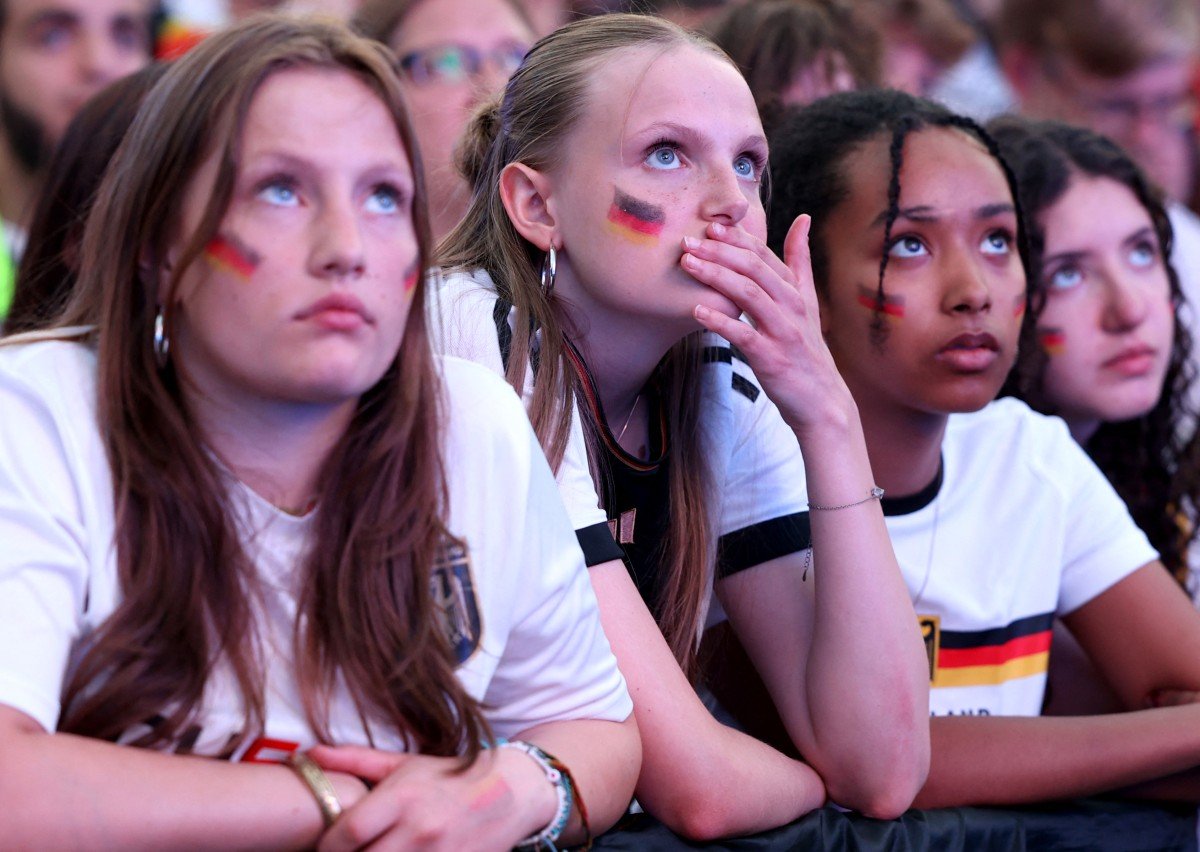German authorities put temporary border controls in place on June 7th in the run up to the UEFA European Football Championships in a bid to clamp down on any violence.
Police announced that shortly before the start of the tournament on June 14th, 1,400 unauthorised entries were detected during border checks.
A total of 900 people were prevented from entering Germany or deported during this time, while 173 arrest warrants were served, Interior Minister Nancy Faeser told German newspaper Bild am Sonntag.
“This shows that our measures are working,” Faeser said, adding that the aim is to recognise and stop possible violent offenders at an early stage.
According to the minister, 19 perpetrators wanted by police due to politically motivated crime were also found, while 34 people smugglers were arrested.
The extended checks are taking place at the borders with Denmark, France, Belgium, the Netherlands and Luxembourg where no checks were previously carried out.
READ ALSO: Germany to check passports at Danish border during the Euros
Travellers from the Schengen zone may also face random checks during air travel, at ports or on buses and trains.
The controls are in force until July 19th – a few days after the Euro 2024 final on July 14th.
Travellers should be prepared for possible longer waiting times at borders – and should carry valid ID as well as any travel documents they need to enter Germany.
READ ALSO: What to know about Germany’s extra border checks for Euro 2024
22,000 officers on the job
Security is a huge factor for the event that sees 24 teams competing in several German cities. Millions of visitors from all over the world are heading to Germany to stadiums and fan zones across the country.
A total of 22,000 federal police officers are on duty to ensure security during the event – the largest deployment in the history of Germany’s police force, according to Faeser.
“They are protecting our borders, airports and rail traffic,” said the minister.
Existing controls at the borders with Poland, the Czech Republic and Switzerland were recently extended by six months until mid-December. The ministry said the aim is to continue combating smuggling offences and limiting irregular migration.
Spike in number of unauthorised entries on eastern borders
It comes as the number of migrants at the German borders with Poland and the Czech Republic – along the so-called ‘Belarus route’ – has risen again.
Police recorded 2,215 unauthorised entries on this route between the beginning of January and the end of May, authorities told DPA.
In January and February there were 26 and 25 respectively, in March the number rose to 412, in April to 861 and in May, according to initial data, to 891.
A total of 1,021 unauthorised arrivals have been detected in Brandenburg since the beginning of the year, 867 in Saxony and 327 in Mecklenburg-Western Pomerania.
But despite this recent rising trend, the overall figures are significantly lower than last year. By the end of May 2023, federal police had recorded 6,000 unauthorised entries on the ‘Belarus route’, as reported by Mediendienst Integration, which processes police statistics.
Poland and the EU have accused Russia and Belarus of deliberately helping people from crisis regions to enter the EU without permission by providing visas and logistics since 2021.
Poland has now erected a 5.5 metre high fence at its external EU border. But according to Polish border guards, people are still trying to cross the border. Since the beginning of the year, 16,500 attempts have been registered, compared to 11,200 in the same period in 2023.




 Please whitelist us to continue reading.
Please whitelist us to continue reading.
Member comments